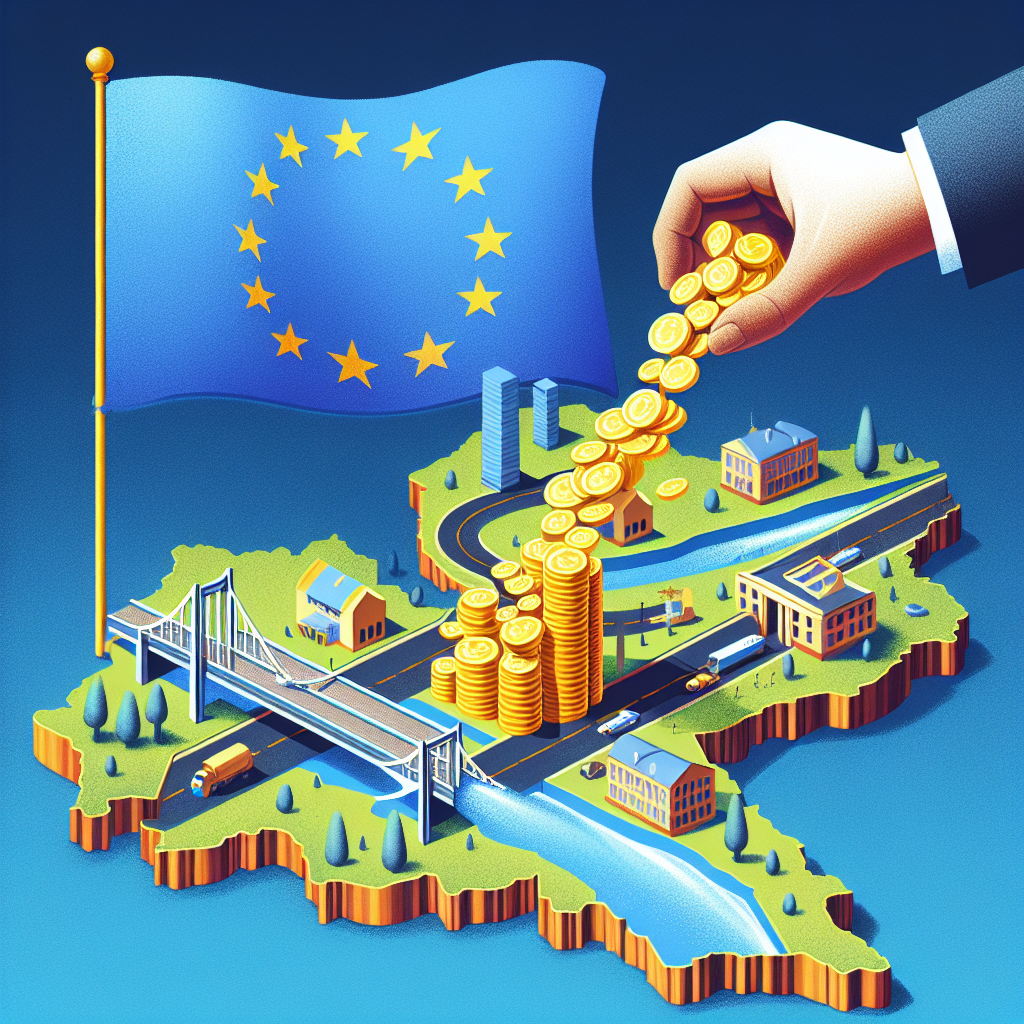EU’s $96M Loan to Cameroon: A New Dawn for Infrastructure Development
In a significant move to bolster infrastructure development in Africa, the European Union has pledged a $96 million loan to Cameroon. This financial injection is set to transform the nation’s infrastructure landscape, fostering economic growth and improving the quality of life for its citizens. But what does this mean for Cameroon, and how will it impact the broader region? Let’s delve into the details of this landmark agreement and explore its potential implications.
Understanding the EU’s Commitment to Cameroon
The European Union’s decision to extend a $96 million loan to Cameroon is part of a broader strategy to support sustainable development in Africa. This initiative aligns with the EU’s commitment to fostering economic growth, reducing poverty, and promoting stability in the region.
The Strategic Importance of Infrastructure
Infrastructure is the backbone of any economy. It facilitates trade, enhances connectivity, and improves access to essential services. For Cameroon, a country with immense potential yet facing significant infrastructural challenges, this loan represents a crucial opportunity to address these issues.
- Economic Growth: Improved infrastructure can lead to increased economic activity, creating jobs and boosting GDP.
- Social Development: Better roads, bridges, and public facilities can enhance the quality of life for citizens, providing access to education, healthcare, and other essential services.
- Regional Integration: Enhanced infrastructure can improve connectivity with neighboring countries, fostering regional trade and cooperation.
Key Areas of Focus for the Loan
The $96 million loan will be strategically allocated to various infrastructure projects across Cameroon. These projects are designed to address critical needs and maximize the impact of the investment.
Transportation Infrastructure
One of the primary areas of focus is the improvement of transportation infrastructure. This includes the construction and rehabilitation of roads, bridges, and railways, which are vital for facilitating trade and movement within the country.
- Road Networks: Upgrading existing roads and constructing new ones to improve connectivity between urban and rural areas.
- Bridges: Building and repairing bridges to ensure safe and efficient transportation across rivers and other obstacles.
- Railways: Enhancing railway infrastructure to support the movement of goods and people, reducing transportation costs and time.
Energy and Utilities
Reliable energy and utility services are essential for economic development. The loan will also support projects aimed at improving access to electricity and clean water, particularly in underserved regions.
- Electricity: Expanding the national grid and investing in renewable energy sources to provide reliable and sustainable power.
- Water Supply: Developing water infrastructure to ensure access to clean and safe drinking water for all citizens.
Urban Development
As Cameroon continues to urbanize, there is a growing need for sustainable urban development. The loan will fund projects that enhance urban infrastructure, making cities more livable and resilient.
- Housing: Constructing affordable housing to accommodate the growing urban population.
- Public Facilities: Building and upgrading schools, hospitals, and other public facilities to meet the needs of urban residents.
- Green Spaces: Creating parks and recreational areas to improve the quality of life in urban centers.
The Broader Implications for Cameroon and the Region
The EU’s $96 million loan to Cameroon is not just about building infrastructure; it’s about laying the foundation for a brighter future. The potential benefits extend beyond the immediate impact on infrastructure, influencing various aspects of society and the economy.
Economic Empowerment
By improving infrastructure, Cameroon can unlock new economic opportunities. Enhanced transportation networks and reliable energy supply can attract investment, stimulate entrepreneurship, and create jobs.
- Investment Attraction: Improved infrastructure can make Cameroon a more attractive destination for foreign and domestic investors.
- Entrepreneurship: Better access to resources and markets can empower local entrepreneurs to start and grow businesses.
- Job Creation: Infrastructure projects themselves create jobs, and the resulting economic growth can lead to even more employment opportunities.
Social Progress
Infrastructure development can also drive social progress, improving access to essential services and enhancing the overall quality of life.
- Education: Better transportation and public facilities can increase access to education, particularly in rural areas.
- Healthcare: Improved infrastructure can facilitate access to healthcare services, reducing travel time and costs for patients.
- Equality: By focusing on underserved regions, infrastructure projects can help reduce inequalities and promote inclusive development.
Regional Stability and Cooperation
The benefits of improved infrastructure extend beyond Cameroon’s borders, fostering regional stability and cooperation.
- Trade: Enhanced connectivity can boost regional trade, benefiting neighboring countries and promoting economic integration.
- Security: Improved infrastructure can support efforts to enhance security and stability in the region.
- Diplomacy: The EU’s investment in Cameroon can strengthen diplomatic ties and promote collaboration on shared challenges.
Conclusion: A Pathway to Sustainable Development
The EU’s $96 million loan to Cameroon represents a significant step towards sustainable development. By addressing critical infrastructure needs, this investment has the potential to transform the nation’s economy, improve the quality of life for its citizens, and foster regional cooperation.
As Cameroon embarks on this journey, it is essential to ensure that the projects are implemented effectively and sustainably. This requires collaboration between the government, private sector, and civil society, as well as ongoing support from international partners like the EU.
In conclusion, the EU’s commitment to Cameroon is a testament to the power of partnership and the potential for positive change. By investing in infrastructure, we can build a brighter future for Cameroon and the broader region, paving the way for sustainable development and prosperity.
